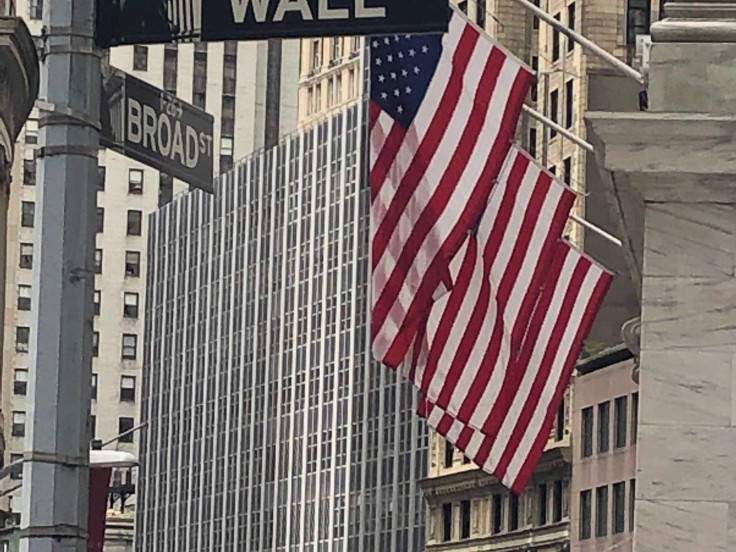Tuesday's Stock Market Open: US Equities Rise On Optimism More States Will Reopen Businesses

KEY POINTS
- HSBC 1Q profit plunges as bank sets aside $3 billion for bad loans
- More US states planning to reopen parts of economy
- European stock markets traded higher
Update 12:05 p.m. EDT:
U.S. stocks have turned mixed in volatile trading.
The Dow Jones Industrial Average gained 27.55 points to 24,161.33, while the S&P 500 slipped 3.59 points to 2,874.89 and the Nasdaq Composite Index dropped 75.39 points to 8,654.77.
In Europe markets finished higher, as Britain’s FTSE-100 gained 1.91%, France’s CAC-40 climbed 1.43% and Germany’s DAX rose 1.27%.
The Conference Board said Tuesday that its consumer confidence index plunged to a reading of 86.9 in April from 118.8 in March.
Original story:
U.S. stocks rose on Tuesday on hopes that more states will begin to reopen some businesses after a long shutdown.
The Dow Jones Industrial Average jumped 367.99 points to 24,501.77, while the S&P 500 gained 42.41 points to 2,920.89 and the Nasdaq Composite Index advanced 99.41 points to 8,829.58.
A number of states plan to, or already have, reopened parts of their economy, including Alaska, Georgia, South Carolina, Tennessee and Texas.
“The stock market is increasingly reflecting a restart in the economy as more and more states show a willingness to allow some economic activities to come back online,” said Jim Paulsen, chief investment strategist at The Leuthold Group. “Not only did the S&P 500 index post a healthy gain [Monday] but it was led by those segments of the marketplace which are most dependent on an economic restart including small caps, high-beta stocks, and cyclical sectors like financials, materials, and industrials.”
Traders will closely observe policy decisions and accompanying statements from the leaders of the Federal Reserve and European Central Bank this week.
HSBC (HSBC) warned it may have to set aside some $11 billion in loan loss provisions this year.
DoubleLine CEO Jeffrey Gundlach is pessimistic about the market, citing it could retest its March low as investors do not fully comprehend the magnitude of the disruptions caused by the coronavirus pandemic.
“I think a retest of the low is very plausible,” Gundlach said Monday. “People don’t understand the magnitude of ... the social unease at least that’s going to happen when ... 26 million-plus people have lost their job.”
The U.S. international advance trade in goods deficit increased to $64.2 billion in March from $59.9 billion in February.
Home prices were 4.2% higher annually in February, up from a 3.9% gain in January, according to the S&P CoreLogic Case-Shiller Home Price Indices.
“Results for the month were broad-based, with gains in every city in our 20-City Composite; 17 of the 20 cities saw accelerating prices,” said Craig Lazarra, managing director and global head of index investment strategy at S&P Dow Jones Indices.
(However, these figures predate the initial impact of the coronavirus pandemic)
Overnight in Asia, markets finished mixed. China’s Shanghai Composite edged down 0.19%, Hong Kong’s Hang Seng rose 1.22% and Japan’s Nikkei-225 slipped 0.06%.
In Europe markets traded higher, as Britain’s FTSE-100 gained 2.18%, France’s CAC-40 climbed 2.03% and Germany’s DAX rose 2.13%.
Crude oil futures slipped 0.31% at $12.74 per barrel, Brent crude rose 1.86% at $23.50. Gold futures edged up 0.19%.
The euro rose 0.33% at $1.0865 while the pound sterling edged up 0.29% at $1.2465.
© Copyright IBTimes 2025. All rights reserved.





















